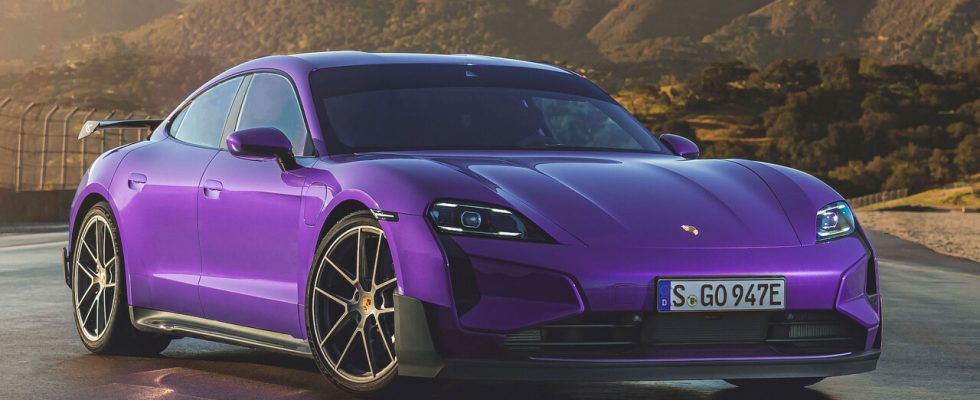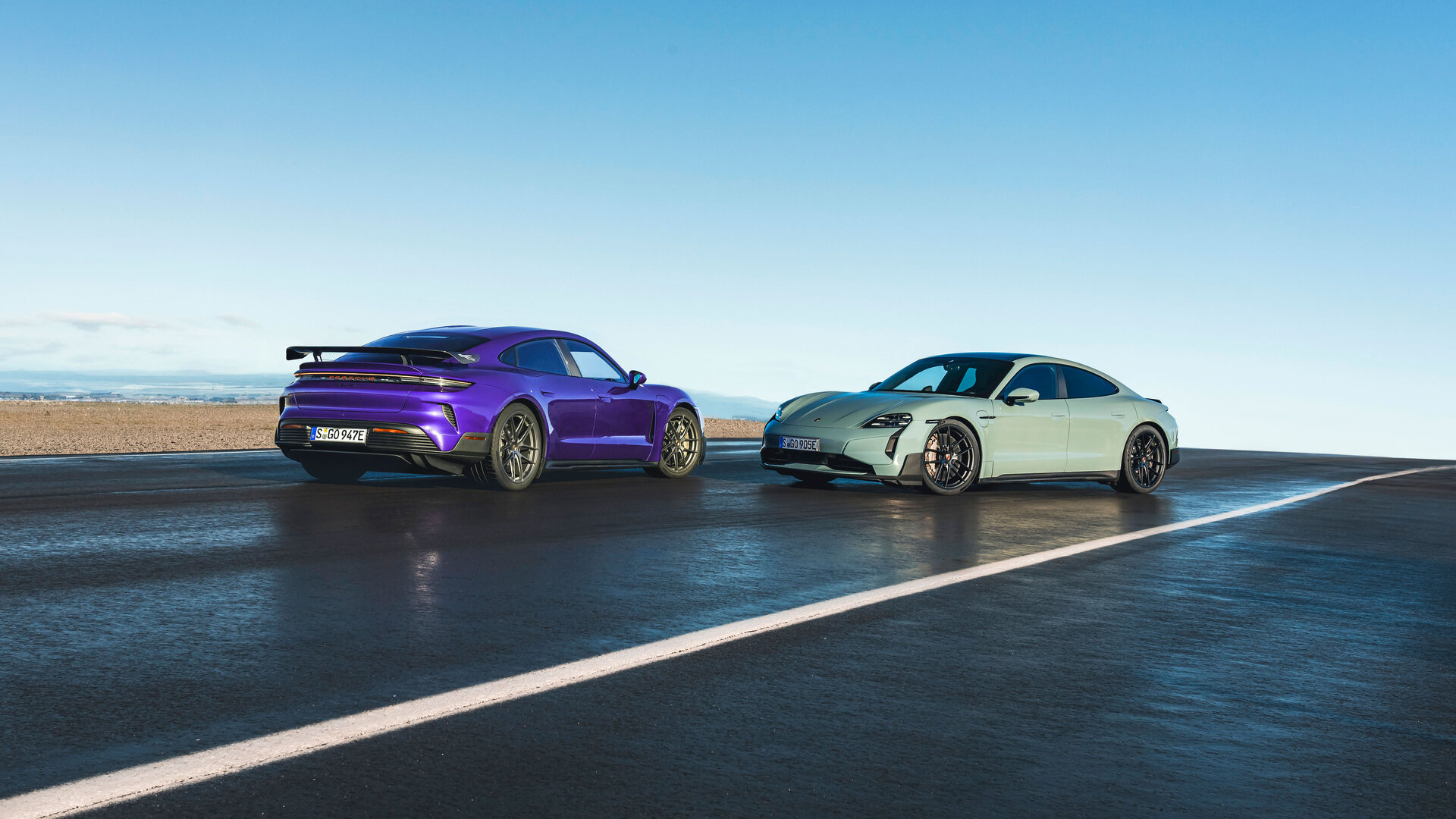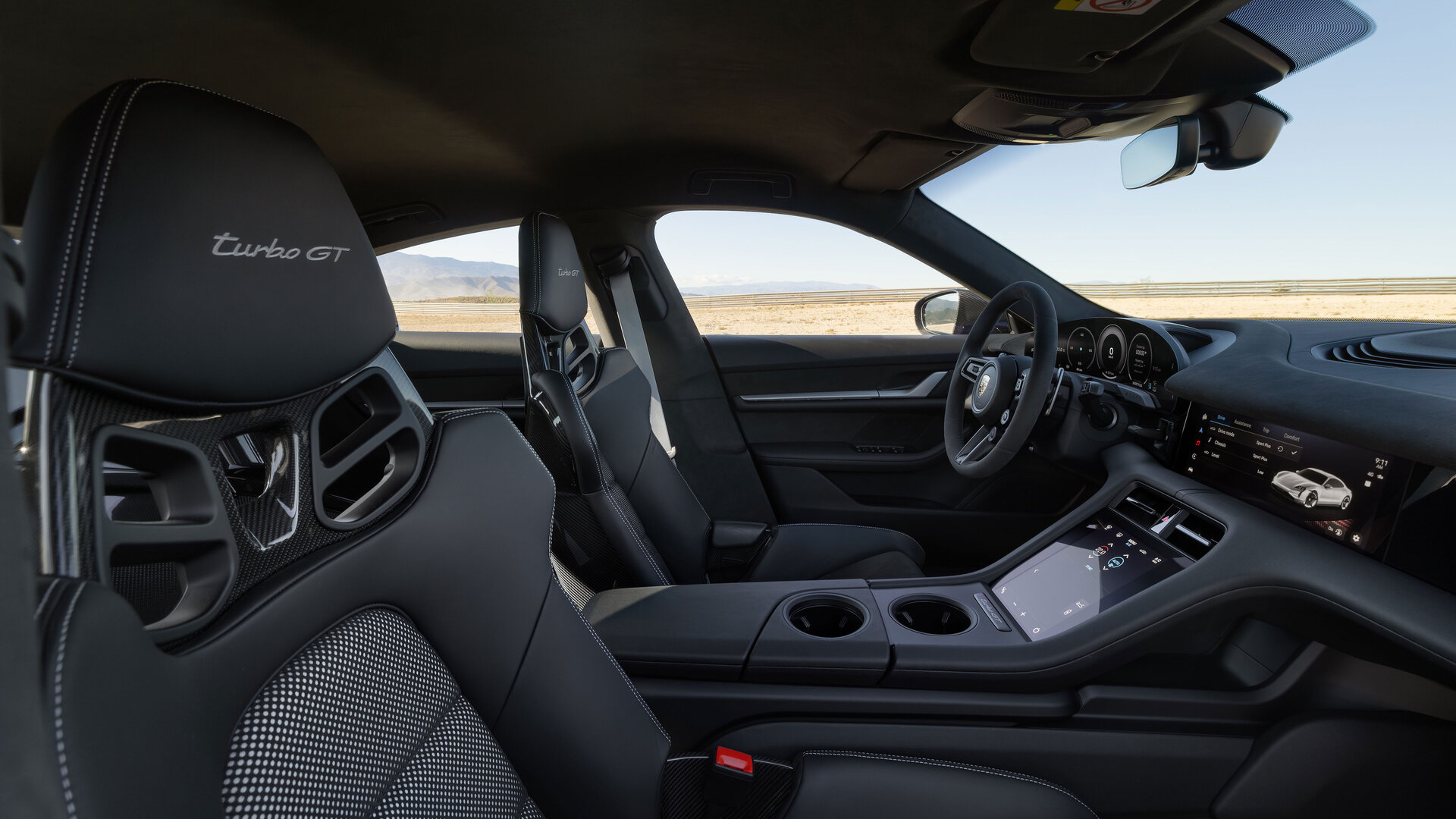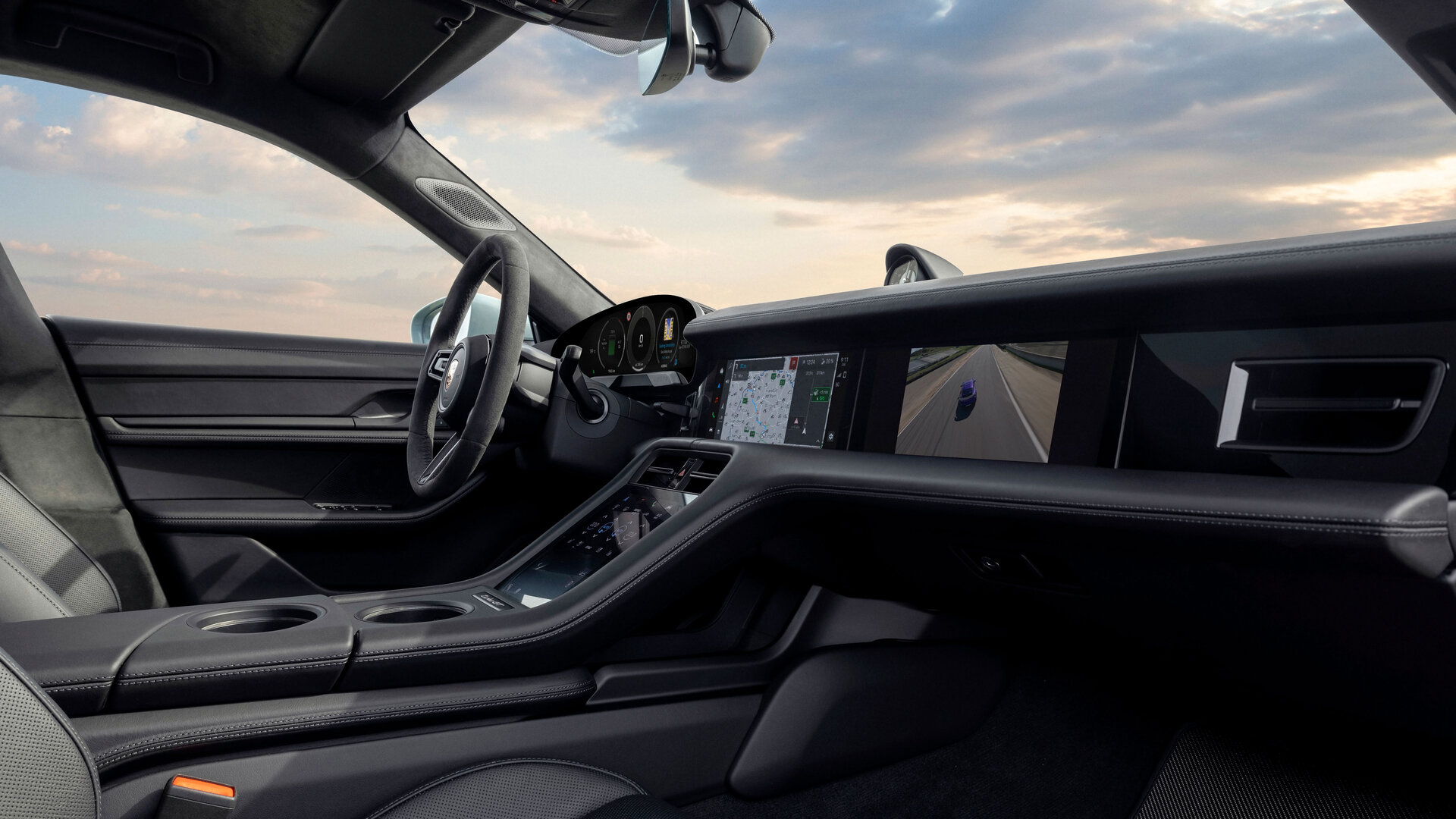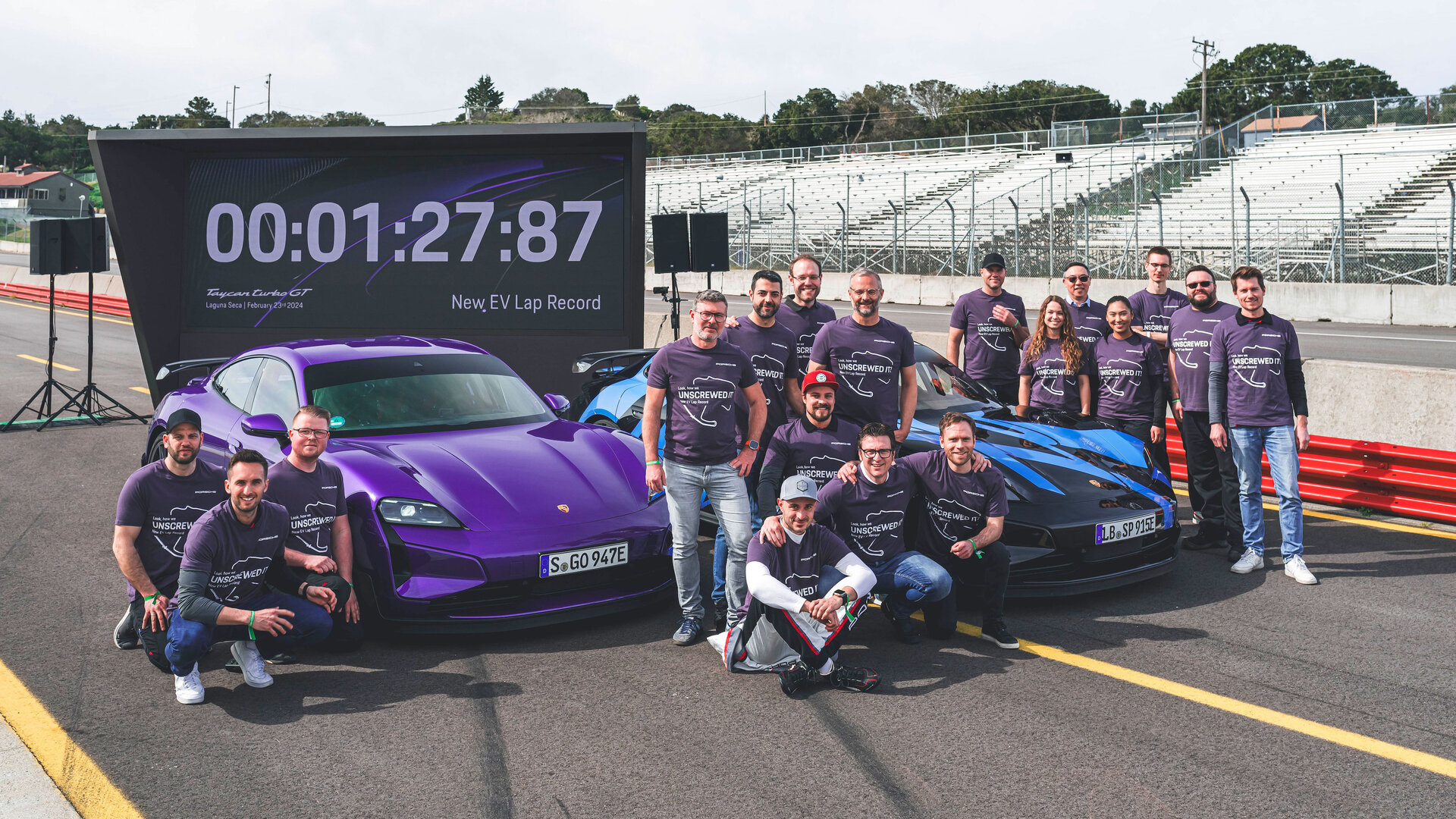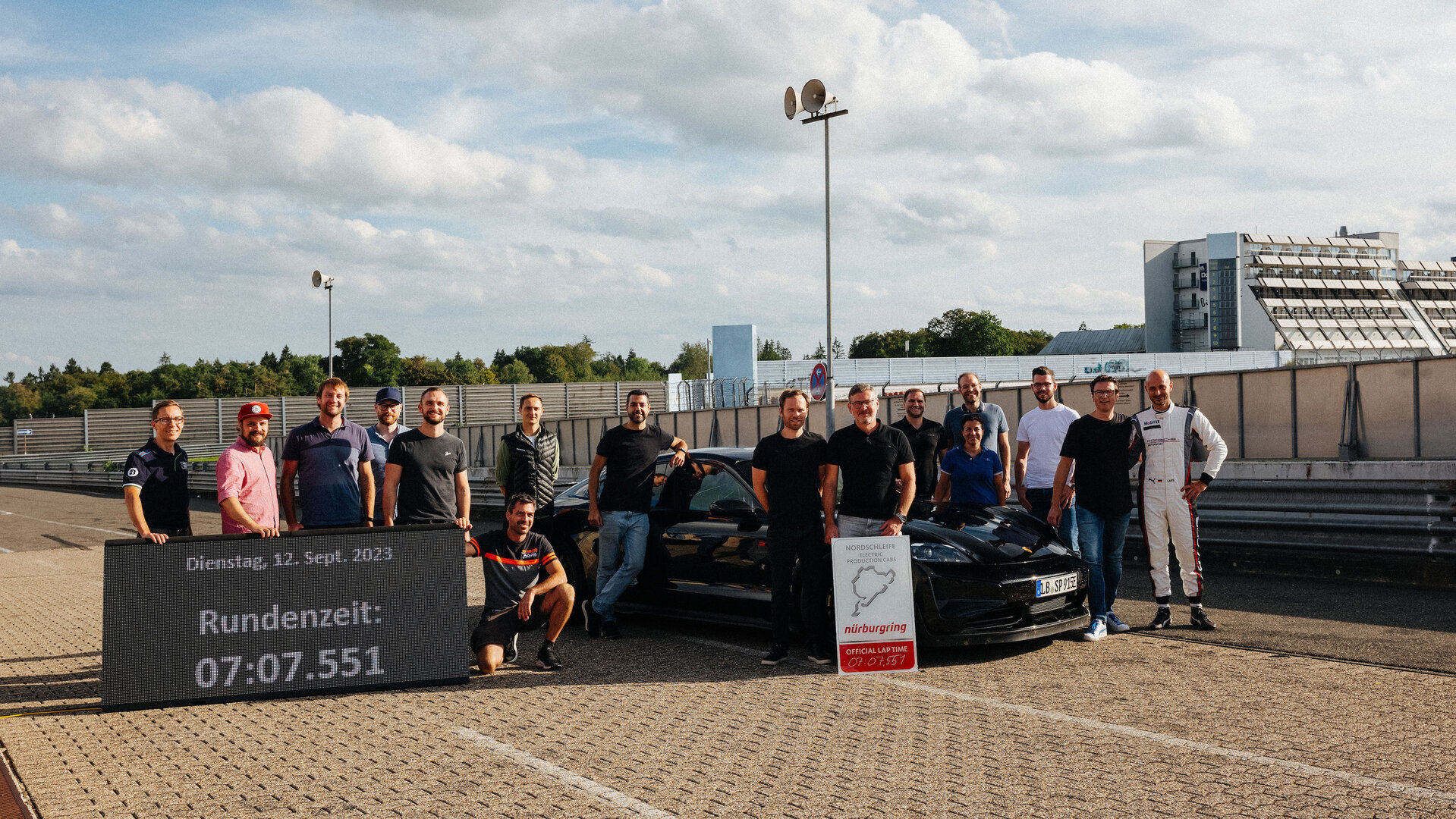Porsche has unveiled the design of the Taycan Turbo GT and Taycan Turbo GT with Weissach package and gives a taste of its performance with a lap record at Laguna Seca. The electric motors generate up to 815 kW for a short time and enable the sprint to 100 km/h in 2.2 seconds at best. It only ends at 305 km/h.
Taycan Turbo GT and Taycan Turbo GT with Weissach package are based on the latest update of the Porsche Taycan, but provide even more power and extreme driving values than the most powerful Taycan Turbo S to date. Porsche is equipping the new sports models with a more powerful pulse inverter, resulting in 580 kW (789 hp) in standard operation, up to 760 kW (1,033 hp) overboost power and up to 815 kW (1,108 hp) for two seconds according to the peak Power measurement method.
Pulse inverter with 900 amps
A pulse inverter (PWR) with a maximum current of 900 amps is now used on the rear axle. This achieves more power and torque than the 600 amp PWR of the Taycan Turbo S. According to Porsche, the semiconductor material silicon carbide is used in this PWR for better efficiency, which is intended to significantly reduce switching losses and enable higher switching frequencies. In addition, according to the manufacturer, the gear ratio and the robustness of the transmission have been improved, making higher torque possible. The maximum torque for both versions is up to 1,340 Newton meters. According to WLTP, the range of the Taycan Turbo GT models is up to 555 kilometers.
With the increased performance, the Taycan Turbo GT sprints to 100 km/h in 2.3 s, with the Weissach package it is an even lower 2.2 s. The new top speed is 290 or 305 km/h. For comparison: The Taycan Turbo S, which has up to 952 hp, reaches 100 km/h in 2.4 s and sprints up to 260 km/h. The differences are greater up to 200 km/h, where 6.6 s and 6.4 s now mean a reduction of up to 1.3 s.
Carbon lightweight construction of up to 75 kg
In addition to more power, lightweight construction, aerodynamics and chassis contribute to the improved driving performance. Depending on the optional equipment, Porsche saves up to 75 kg compared to the Taycan Turbo S thanks to, among other things, carbon fiber covers for the B-pillars, upper shells of the exterior mirrors and inserts for the side sills. In addition, the full bucket seats made of CFRP, a lightweight trunk shelf and the absence of the electric tailgate closing aid save weight. The dynamic package with Active Ride chassis in GT-specific tuning is available as standard, plus special performance summer tires on 21-inch lightweight forged wheels. The lightweight ceramic brakes, which are based on the Porsche Ceramic Composite Brake (PCCB), are also standard, but save over 2 kg thanks to design changes to the brake disc pot and the brake caliper housing. Porsche has developed a front spoiler with aeroblades especially for the Taycan Turbo GT.
Weissach package removes rear seats and more
The Taycan Turbo GT with the Weissach package reduces the weight by a further 70 kg, as instead of the usual rear seats there is only a lightweight carbon panel with a storage compartment behind the seat shells for the driver and front passenger. The analog clock of the Sport Chrono package, which is otherwise installed on the dashboard, as well as the floor and trunk mats are also omitted; In addition, less insulation material is used. The Taycan Turbo GT with Weissach package only has a loading flap on the passenger side. It is operated manually instead of electrically. Special noise/heat insulation glazing and the Sound Package Plus also contribute to weight savings. The latter does not have rear speakers and replaces the regular Bose sound system.
Laguna Seca lap record
With the Taycan Turbo GT with Weissach package, Porsche took the title of the fastest electric production car on February 23, 2024 Weathertech Raceway Laguna Seca in California secured. The new best time is 1:27.87 minutes. Porsche had previously completed the Nordschleife in 7:07.55 minutes with a pre-production version.
Both versions of the Taycan Turbo GT costs in the configurator from 240,000 euros.

